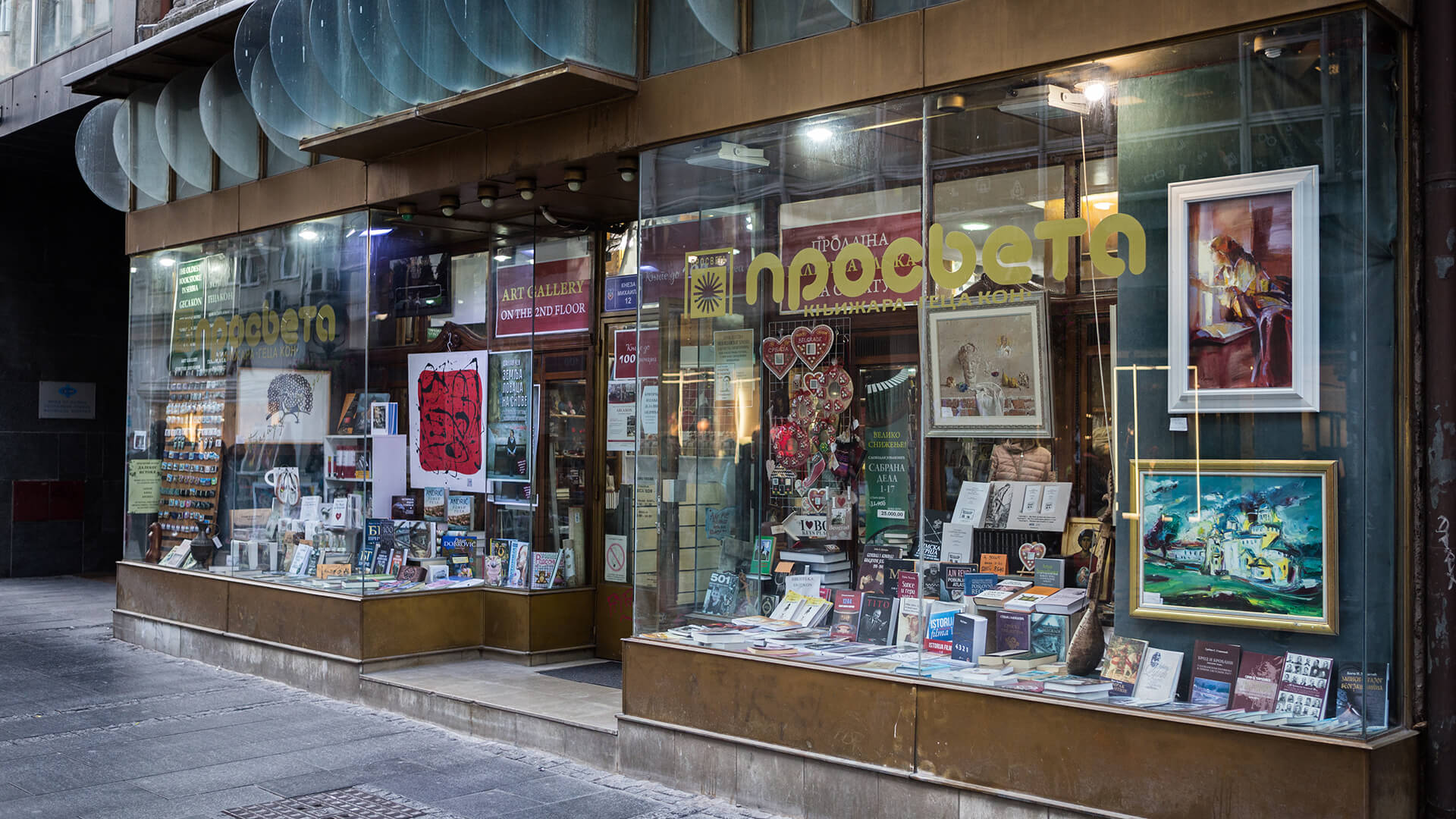

PROSVETA
Status: Open
Ongoing investigation
Company status:
Active
Ruling parties:
- DS-SPS
Key persons:
-
Mlađan Dinkić
Dinkić je od 2000. sredine 2003. bio guverner Narodne banke Srbije, a od 2004. do 2006. bio je ministar finansija. Na mesto ministra ekonomije postavljen je 2007. godine, a tu funkciju nastavio je da obavlja i kada je formirana sledeća vlada 2008. godine kada dobija i funkciju potpredsednika Vlade. U Vladi formiranoj 2012. objedinio je funkcije koje je vršio u prethodnim vladama.
-
Dejan Pantović
Dejan Pantović je suvlasnik i direktor preduzeća IPS, u čijem je vlasništvu Media II kroz koju je 2009. privatizovao dva izdavačka preduzeća u Beogradu – Prosvetu i Rad. Oba ugovora raskinuta su 2010. godine, a Više javno tužilaštvo u Beogradu i dalje ispituje da li je Pantović kršio zakon dok je upravljao ovim preduzećima
Timeline
- 25/06/2009 The Privatization agency sells 70% of Prosveta to the company Media II
- 14/12/2009 Media II passes decision on selling a part of Prosveta property
-
17/12/2009
Guarantee for loan for Media II
Media II took a 37 million dinar loan for the purpose of Prosveta, which is why Prosveta's business space of 518 square meters, located in Belgrade, was placed under mortgage.
- 21/01/2010 Prosveta employees go on strike
-
02/02/2010
Extraordinary control in Prosveta
The Privatization Agency concluded that the sale contract was violated.
-
21/04/2010
Mlađan Dinkić visits employees on strike in the Geca Kon bookstore
The then Minister of economy tried to exert influence on the employees to give up strike.
-
27/07/2010
Report of the Anti-corruption Council
The Council pointed to Prime Minister Mirko Cvetković to the violation of the sale contract and failure to act on part of the Agency.
-
15/09/2010
The Agency terminates the contract with Media II
Neither did the buyer pay the third out of six installments even though the deadline had been prolonged, nor did it meet its obligations to employees.
-
06/2013 - 12/2013
The Working Group of MUP files reports to Prosecutor’s Offices
The investigation within the First Prosecutor’s Office encompassed one of the two MUP reports, after which the case was forwarded to the Higher Prosecutor’s Office in Belgrade, which still conducts the investigation.
Resume
The once largest publishing company in the Balkans, Prosveta, was first offered for sale in autumn 2004, but was privatized only in 2009. The tender commission first accepted the offer of the consortium of the University Singidunum and the company Zepter Book World, but this was given up, as the Privatization Agency did not want to allow change of purpose of the Prosveta bookstore Geca Kon in Knez Mihailova Street in Belgrade. In June 2009, 70% of the property of Prosveta was sold to the company Media II as the second-rated bidder, at the price of 3.2 million EUR, which derogated from the bottom limit of the requested amount.
In the end of 2009, Dejan Pantović, co-owner of Media II, started selling Prosveta’s property. The property in the centre of Belgrade – three flats in Čika Ljubina Street and several premises in Dobračina Street – soon changed its owners. The space located at Cara Dušana Street comprising 518 m2 was placed under mortgage due to the 37 million dinar loan which Media II took in November 2009 from the RS Development Fund, allegedly for the purposes of Prosveta. The publishing company Rad, which Media II had purchased two months before Prosveta, was also the pledgor. Due to the tax debt, the business space in Cara Dušana Street was soon encumbered with yet another mortgage.
According to the sales contract, Media II had the obligation to pay all outstanding salaries and other allowances to employees by the end of 2009, which was not done. Trade unions and small shareholders of Prosveta kept complaining to the Agency fruitlessly, requesting control. On 21 January 2010, the employees went on strike.
Media II paid a part of its debts to the employees from a loan from the Development Fund. In February 2010, the Agency performed inspection of Prosveta and concluded that the Contract was breached by the taking of the loan by which property of Prosveta was encumbered; however, the Contract was not terminated. On 21 April, on the occasion of his visit to employees on strike in Geca Kon bookstore, Mlađan Dinkić (G17+), at the time the Minister of economy, said: “You can definitely not count on termination of the Contract, because we believe there is a lot of politics involved in this. I talked to President Tadić directly about this. We have taken a firm position”.
In July 2010, the Anti-corruption Council filed a report on Prosveta to Mirko Cvetković, Prime Minister. The Council perceived the continuous blockade of the Media II account in the course of the previous four months as a “clear indicator of poor business operations of the buyer”, which was also reflected on business operations of Prosveta. It was also stated that in the course of the strike Dinkić kept exerting pressures on Prosveta employees; previously, as the president of the Managing board of the Fund, he had approved of three loans to the Prosveta buyer.
Besides the debts, monthly income of Prosveta diminished; thus, in the end of 2009, its income was by 63% lower than in 2008. As Media II did not pay the third out of six installments for the purchase of the company nor did it fulfill its obligations to employees, the Agency finally terminated the Contract in September 2010, and transferred Prosveta’s capital to itself. Two weeks earlier, the Agency had terminated the Contract on purchase of publishing company Rad for similar reasons.
Prosveta soon initiated the process of restructuring, while the reorganization plan was adopted six years later. State companies, which had acted as creditors until that moment, transformed their claims to stakes in Prosveta, which is an active company today, although it keeps experiencing great losses.
Media II became bankrupt in November 2011. By the decision of the Commercial Court in Belgrade, Prosveta got the right to 48.3 million dinars from the bankruptcy estate, as it was proved that Media II had been covering its debts by selling Prosveta’s property.
The given events are still being investigated. Criminal charges were filed by Trade Union Nezavisnost and Confederation of Independent Trade Unions in April and June 2010 because of the low price at which the Agency sold Prosveta, failure to meet contractual obligations, and conclusion of allegedly detrimental contracts with the buyer’s companies.
In June and December 2013, the Working Group of MUP filed two reports to the Prosecutor’s Office for Organized Crime. The police suspected, among others, that Dejan Pantović had abused his office when he covered the loan from the Fund by selling Prosveta’s real estate. In August 2013, following the meeting with representatives of law enforcement and the First Basic Prosecutor’s Office, the deputy prosecutor for organized crime concluded in an official note that Prosveta was privatized in a legitimate manner, and sent the MUP documents and criminal charges of the trade union to the First Prosecutor’s Office. The case was filed from the First Prosecutor’s Office to the Higher Prosecutor’s Office in Belgrade, while sources from the Higher Public Prosecutor’s Office in their reply for CINS stated that they had formed a new case in which they examined the statements in the criminal charges.
